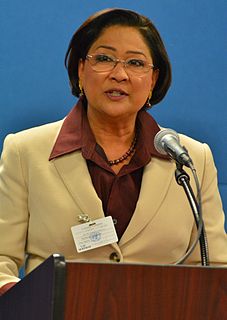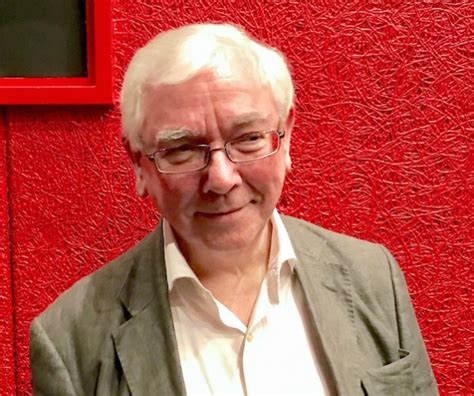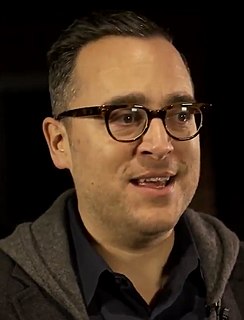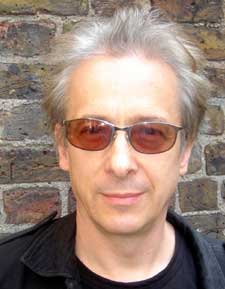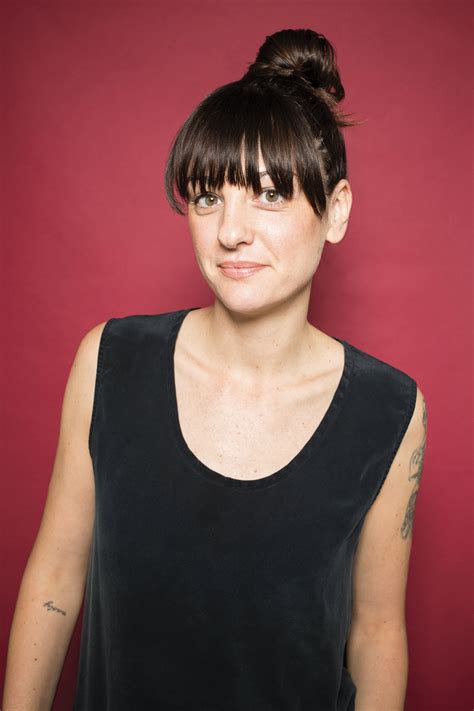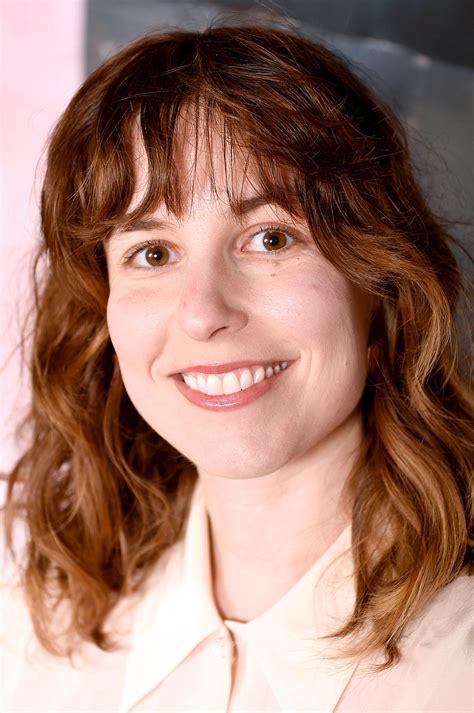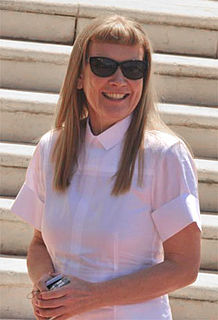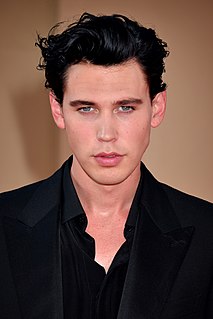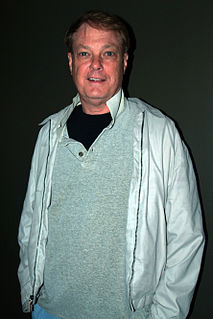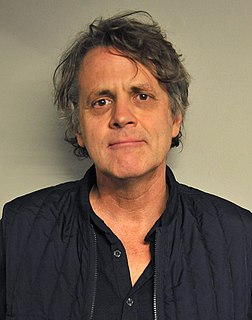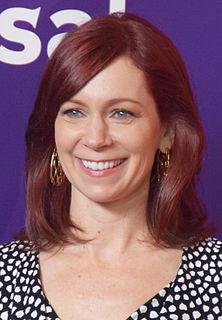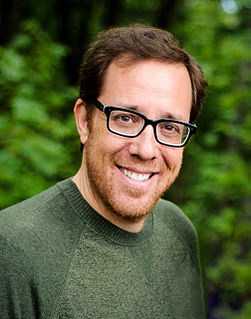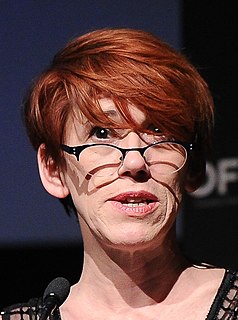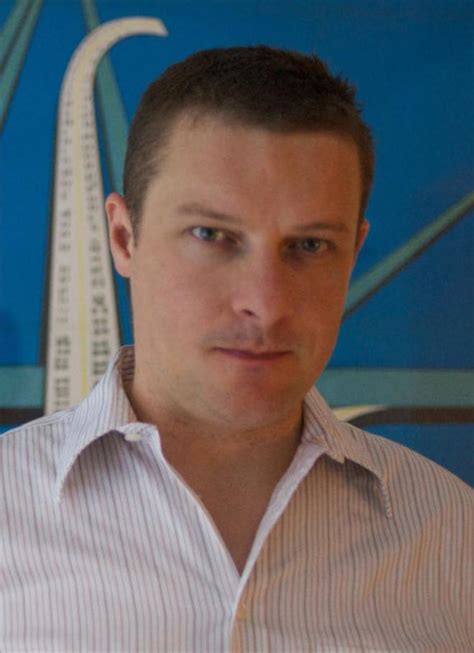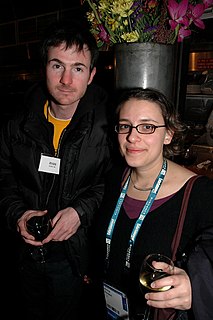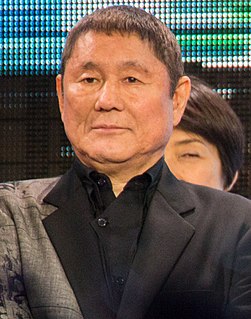Top 967 Filmmaking Quotes & Sayings - Page 16
Explore popular Filmmaking quotes.
Last updated on December 23, 2024.
It's been reinforced to me, and it's a little cliche, but I've learned that you can't make a movie that even works, much less that's good, without really good writing and really good acting. That lesson has led me to not be distracted, so much, by the other stuff going on in filmmaking and to focus on the essence of a story, and the words and the events and the way that those are interpreted by the actors. That philosophy has taken me to a place that I really like.
I'm a curious guy. I can't turn away from an investigative story, when it comes to the forensic analysis. I've done 33 dives, to the titanic wreck site. I've spent over 50 hours piloting robotic vehicles at that wreck trying to piece together what happened during the disaster. How the ship broke up, comparing the historical record with the forensic record. Documentaries are kind of my new life. I love documentary filmmaking.
We have seven pillars of development. India has a cutting edge information technology industry. We are setting up a technology park. We would like to see technology penetration iin education. Besides, we would like to see cooperation in industries like fashion, filmmaking, ship-building, education, health and energy.
Los Angeles is Hollywood and Hollywood is Hollywood Blvd. It's the first thing you want to see. It's the only thing really that you know about as far as Los Angeles is concerned. And so you go and you look at Joan Crawford's hands and feet and the whole history of American filmmaking is encapsulated in that one little area on that one street. That street, to me, has always been the street of dream.
I have no illusions about my filmmaking work but I must add I have no illusions about anybody else's either. I am very strict with myself and I think, "no, that could have been improved", "why didn't I put a little bit more then? Why didn't we come out then?" It was what I thought was right at the time and you have to stand by that. And if it completely fails you have got to say, "But that is what I meant at the time.".
From the moment I met Martin Scorsese in 1962, he educated me about the films that had taught him so much about filmmaking. He had been deeply affected, even as a child, by great films that stretched his mind and struck into his heart, and he was eager to share them with friends and people who worked with him or with actors who were in his films.
John Belushi infused Animal House with this spirit of guerilla filmmaking. John Landis came from that world too, and all the National Lampoon writers were from that world. It was just chaos on film. Controlled chaos, though. We stayed very close to the script. It was a very formal kind of movie, if you look at it. Formally photographed and structured, with certain elements of improv.
You have to remain strong. That's the kind of filmmaker I want to encourage. Orson Welles was the one who said, you know, you can learn anything you need to know about filmmaking- that's camera, sound, celluloid, video at this point- in four hours. It has nothing to do with anything. It has nothing to do with it... It has to do with what you want to say. If you feel you have something to say, you'll find that way to get it said, on film, and not let anyone or anything chip away at that or tarnish it, because it's something special and precious.
I think a lot of times when people have "creative blocks" and I know my share of friends do as well if they're at just some stuck point. They're not sure what to do with their lives or their writing or their photography or their filmmaking or whatever it is that they're doing. I think the best advice is you have to change your life up completely; to go on a trip, to go spend a year being of service. Be willing to take some major drastic action to get you out of your comfort zone and go inside, not outside.
I feel very grateful. I wasn't raised with money. My parents were schoolteachers; I was raised on a small farm. It never dawned on me that I would have a job that someone would pay me to do. Much less a job like this. It would be ridiculous if I had any complaints about it. And look - I've had the opportunity to learn an entirely new set of skills, and I'm bringing them to the work I'm doing now in filmmaking.
While you are walking you would learn much more about filmmaking than if you were in a classroom. During your voyage you will learn more about what your future holds than in five years at film school. Your experiences would be the very opposite of academic knowledge, for academia is the death of cinema. It is the very opposite of passion.
I think a lot of people go into filmmaking thinking, "How can I make a career?" And so when they make their first film, they make it thinking, "Well, this'll be the one that gets me to the place where I can make the second film the way I want to make it, and that'll get me to the place where I can make $100 million on the third film." And I thought, "Well, if I put sustainability at the bottom of my priority list, then what opportunities is that going to free me up to pursue?" And that's what I've always done.
Most Chinese filmmakers grew up watching television; they watched films on television, not in cinemas. The scope of their vision is not big enough, they're not yet detail-oriented enough. You have to watch films in cinemas for years to understand the depth and scope of vision needed in filmmaking. Directors in China usually come from an academic background; they graduate as film directors. Whereas the directors from Hong Kong learn their trade on sets, beginning at the lowest rung.
My filmmaking education consisted of finding out what filmmakers I liked were watching, then seeing those films. I learned the technical stuff from books and magazines, and with the new technology you can watch entire movies accompanied by audio commentary from the director. You can learn more from John Sturges' audio track on the 'Bad Day at Black Rock' laserdisc than you can in 20 years of film school. Film school is a complete con, because the information is there if you want it.
I think we create our world through stories. We use storytelling to escape or protect ourselves from the unimaginable and the horrible - from the real, in a way. It's like white light - if you put everyday reality through a prism you get this rainbow of colors that you couldn't see before. I'm interested in exploring the world to show the things that are invisible. And not just undocumented aspects of reality, but to actually make manifest things that have been hitherto invisible through the intervention of filmmaking.
What we definitely agree with Walter on is that filmmaking is teamwork. It's one of the only arts that is truly based in the work of a team. Anyway, Werner he told us a lot of practical things. How to hang a hammock. He'd circle a map and give us a notebook with directions to get to certain places that were out of the way. He told us to drink the river water and not use purifications tactics that only "New Age assholes" used. He said that if we saw piranhas, we should jump in and swim with them. We did all of this. We took his word as gospel.
We just assume all the great actors are in New York first and then L.A. second, and it's so not true. There's such amazing talent everywhere. It's exciting that now that there are these sort of new Hollywoods or new filmmaking communities that really benefit from these great faces and character actors and leading actors that just are fresh and exciting and bring an authenticity to the piece.
I left film because I felt that photography was my art. It was something I could do on my own, whereas film was so collaborative. I thought as a photographer I could make something that was artistic and that was mine, and I liked that. And it wasn't until I got back into film and I have very small crews and I could do very tiny filmmaking that wasn't 100 people that I still felt that I was making something artistic as a filmmaker. So, you know, I'm an artist, and whether it's photography or film, I want my voice to be there and I think my voice is very strong in this film.
My filmmaking style of remixing came out of necessity. When I was a film theory student at UC Berkeley in the early 1990s, there were no film production facilities. The only way I learned to tell stories on film was by re-cutting and splicing together celluloid of old movies, early animated films, home films, sound slug - anything I could get my hands on.
I thought I should try something relatively inexpensive, relatively contained, relatively small. I started working on a feature, a film I'd still like to make: a very talky film of people and ideas about our contemporary state with regard to relationships, marriage, sex, and romance. I started trying to educate myself about filmmaking.
I learn a lot as a director from acting in other people's films and just in general. I want to try and be as involved in the art of filmmaking as possible. I feel that the only way to really do that is to take on as many roles as possible, whether it be as an actor, an editor, a director, a cinematographer. Basically, I like to help and be involved, so anything anybody asks me to do, my first reaction is to say "Yes."
I think that film festivals, we're very often given to understand, are about filmmakers and about films and about the industry of filmmaking. I don't believe that they are, I believe that film festivals are about film audiences, and about giving an audience the encouragement to feel really empowered and to stretch the elastic of their taste.
In polite society, there is such a thing as sensitivity to some issues, as time has gone on. There was a time when we weren't politically correct, at all, and we all wince at moments when we look to the past and see that. I don't really know what the answer is, as far as that is concerned. However, me, as an artist, I don't really think about it, at all. It actually is not my job to think about that, especially in terms of me, as a writer, but also as a filmmaker. I'm not worried about the filmmaking part because, if I'm writing it, that's what I'm going to do.
I think every filmmaker in Europe would be lying if they didn't say one day they just wanted to make a movie here in Hollywood or at least try it. It's very different from European filmmaking, because here it's like a real industry. It's very much about money and making money, which I think is fine, because it's very expensive to make movies.
I've never done a lead role in a film this big [like Doctor Strange], in a franchise this big. One of the reasons was, I wanted to know what the toy box was like. And it's just insane, the amount of facility that everyone gets, but the amount of artistry and craft that's brought to every aspect of filmmaking. I mean, you go to your first costume fitting and it's one of thirty. It's a myriad, but it's for a reason. There are so many incredible costumes in this.
I always feel like I learn more from directors that are new, and I also am able to understand how much I really do know about filmmaking when you work with directors that maybe don't have as much experience, so you're able to sort of take the reins. I know how to do these movies, I've done so many of them and have learned from new directors who are usually willing to try new things and are more open to allowing someone like me to kind of come in and just do what I know how to do.
I think coming off of "Blame", I've been talking a lot about directing. It's something that I really love and connect with. I truly consider it what I was born to do. That kind of loops in with filmmaking on the whole, because when you create something, you're also wearing a lot more hats than just director. At the same time, I also think acting is something that's very powerful in my life.
Growing up and applying to college, I just imagined that I would study acting. But then, once I went to college, I realized I was more interested in all the aspects of filmmaking as opposed to all the aspects of theater, which is what you would have to do if you studied acting at a liberal arts school. And so I thought, "Oh, I'll meet directors and filmmakers, and I'm an actress, so I'll become friends with them and hopefully be in their movies." And then It worked!
The good thing about being in advertising was a lot of the skills cross over: you have to be accountable for your jokes; you have to tell a story quickly. It's the most expensive filmmaking foot-for-foot in the world, so it does teach you how to use all of the machines and how to think of things in terms of the physical process of capturing the images. And you have to sell your work. You have to walk into whatever it is and stand up in the middle of a conference room with a storyboard in your hand and make people laugh.
When I was in New York I heard many people saying that the independent film industry was in big trouble. I was reflecting on this when I came home. Realizing that ever since I started filmmaking, people have being saying that. But somehow it keeps going. Filmmakers keep going. We need stories to make sense of the world and some people like me are driven to tell them. I have faith this will always be possible.
It's just the overall lack of privacy. I've always been a very shy person and so it invades that a lot. It goes with the territory so I'm very grateful to be able to do what I do. I love it and I love acting. I love being on set. I love the whole practice of filmmaking but the lack of privacy is hard. Fans are amazing because for the most part it's just love that they are sending to you. It's beautiful.
The amazing fact that one person can make his own film - I think animation is somewhat unique in that respect. I don't need to deal with lawyers. I don't need to deal with corporations. I don't need to deal with executives or agents or any of that. I can just sit at home and make a feature film. That's a wonderful experience. Each film I make gets more popular, more press and makes more money. So it's amazing that I've survived and actually prospered doing that sort of homegrown, cottage-industry filmmaking.
For me, filmmaking is an ongoing self-reflection process. I kind of push everything to the edge. I feel very exposed and fragile when I make a film. It's a process of dealing with loneliness. And it's also very dramatic - because while you are working on a film, you just realize how incapable you are of dealing with all these things. And you open yourself up, and it's like your heart is utterly exposed. And it's very tiring on a daily basis.
I think auditions are set up for failure because they're not really the set experience. There's no time to develop the character. You're just looking at someone... if someone's really good in an audition, sometimes they're not good in the film. It's something you learn when you're doing short films. It's the same way that some people do well at taking tests and some people don't. But when you're on a long-term filmmaking process it's a completely different feeling.
I encourage film students who are interested in cinematography to study sculpture, paintings, music, writing and other arts. Filmmaking consists of all the arts combined. Students are always asking me for advice, and I tell them that they have to be enthusiastic, because it's hard work. The only way to enjoy it is to be totally immersed. If you don't get involved on that level, it could be a very miserable job. I only have one regret about my career: I'm sorry that we are not making silent movies any more. That is the purest art form I can imagine.
When you reflect upon the significance of Dr. King to this nation, it's criminal that he hasn't had a feature film that was centered around him until now. That, in and of itself, was emotional. But when you're doing scenes on the Edmund Pettus Bridge, with people still living in Selma and now in their 60s and 70s who had actually marched, who were there that original Bloody Sunday, that's humbling... that's deeply moving. You're no longer acting at that stage, you're just reacting, because it takes the filmmaking process to another dimension.
I've been working in computer animation for 25 years. I'm obviously a devotee of the technology. I just think it's the one aspect of the medium that's going to continue to revolutionize the filmmaking. It's constantly changing and it's constantly opening up new possibilities. The technology is evolving where 2-D animation was ultimately limited by how long you could pay how many people to make a movie. I mean computers, not that it's in anyway a labor saving device, but it promises to open up exciting new technical possibilites.
I just enjoy the filmmaking side of things. I feel like when you're an actor, sometimes you're in other people's hands and they're in charge of your creative life. Whereas with my production company, I'm the one that gets to make those choices for how I'm gonna spend my time and what content I'm going to be creating. I definitely learn a lot, especially about acting, by producing and directing and seeing how it all comes together, and seeing the other side of things, appreciating what goes into pre- and post-production, and all those things you don't see when you're an actor.
I really love any and all manifestations of art, really respect any kind of artistic impulse, whether it's paintings and sculptures or really good filmmaking or music. I really see the relationships between these different mediums as very fluid. I think you see that nowadays, in this postmodern context, there's much more use of different mediums in contemporary art. For me, if you're a creative person, you can choose to make a painting, you can choose to make a film.
There are two kinds of filmmaking: Hitchcock's (the film is complete in the director's mind) and Coppola's (which thrives on process). For Hitchcock, any variation from the complete internal idea is seen as a defect. The perfection already exists. Coppola's approach is to harvest the random elements that the process throws up, things that were not in his mind when he began.
I felt like I was a writer, and I just thought filmmaking was the best way for me to express that, because it allows me to embrace the visual world that I love. It's allows me to interact with people, to be more social than fiction or poetry, and it felt like the right way for me to tell the stories that felt pressing to me.
Having been an actor, I always want to leave room for the actors to find their comfort zone, so I don't like to be too rigid in how I plan my shots. It's different if you have weeks to rehearse and you can rehearse on your sets or in your locations and you can plan that out with your actors, but in modern independent filmmaking, you don't really have that time. You have to have a certain level of improvisation.
Education is huge for me. I went to public school until I turned thirteen, and was lucky enough to afford college once I became successful as an actress. I cannot believe that quality education costs as much as it does in this country. Ghetto Film School is a remarkable public high school in New York City where students get to learn to express themselves through filmmaking, and have hands-on access to equipment.
When we make films - even 2D films - you're always trying to create this illusion of 3D, anyway. You're trying to create a believable world with characters walking, in and out of the perspective, to create the illusion that there's a world. The desire and drive to create this illusion of three-dimensional space is something that is true about every kind of film because you want the audience to really be experiencing it, first hand. It's a natural extension of the storytelling and the process of filmmaking.
I never know what my next move will be in Hollywood. It's such an unpredictable town. People get jaded and lost and I've been able to stay a float. I think the next logical step in my career would be to start my own filmmaking empire like (Harvey Weinstein) and (Bob Weinstein) did so many years ago. I think if only the unions weren't so strict in Boston, I'd set up shop there and make films of a certain quality you don't see represented these days. I'm full of ideas and dreams.
There are people - I think this is why there are so many commercial directors doing well in big studio movies, for whom it's not a personal choice - it's "What's the coolest, most effective way to make them laugh, make them scream?" It's a very calculated approach. And that's different. It's not better or worse. It's just a very different approach to filmmaking. That's always been the case.
Most people look at a feature film and say, "It's just a movie." For me there is no border or wall between fiction and documentary filmmaking. In documentaries, you have to deal with real people and their real feelings - you are working with real laughter, happiness, sadness. To try to reflect the reality is not the same as reality itself. That's why I think that making a good documentary is much harder than making a good feature film.
Filmmaking and television series are team sports. Look for the best team for you. Plan, budget your time, money and spirit. You need all three to get serious work done. Never say no because something scares you. Never say yes because you're flattered. Stay open, but stay proud. It never gets easy. Get over that part. Get on with it.
I've been extremely lucky to work with Elmer Bernstein, Howard Shore over the years, but I've always imagined films with my own scores, because I don't come from that world or that period of filmmaking. And so how could I make up my own score on a film like this where it isn't necessarily made up of popular music from the radio or the period; it isn't necessarily classical music. But what if it's modern symphonic music?
The relationship with actor and director is probably closer to theater, in that, when we record the dialogue, there is very little in the way of the creative collaboration - no cameras, lighting or even locations. Then, once we record, the post process is very similar to the post flow in filmmaking - editing, sound design, mixing, etc. At the end of the day, it's all about storytelling and honing in on a tone by developing a rhythm and structure that suits the storytelling.
None of our films look alike, we are very dialectical in our approach to each one, and 'Hoop Dreams' was no exception. That's what I love about documentary filmmaking, we never know where the story is going, we don't know what is going to happen next, and we're inside a culture of people that you have to figure out in many ways. It's a relationship between what you thought might have been the story, and what happens in the 'field.' Out of that comes the story, which was exactly what happened with 'Hoop Dreams.'
You get told a lot in school to tell what you know, write what you know. But what excites me about filmmaking, about being a storyteller, is being able to learn about other people, putting myself in somebody else's shoes, whether that be someone from the Dominican Republic or someone from Cuba or inner-city Brooklyn.
We've kind of grown up in a post-Star Wars era, and what Star Wars did to cinema, in terms of an explosion of that kind of blockbuster culture. It's thrown up a generation of geeks. With the evolution of computer games and the Internet, that's all impacted on us as a generation, and affected the creative element of that generation enormously. So whereas the different schools of filmmaking...
'Hoop Dreams' brought us back to our roots in veríté filmmaking. What we saw in the powerful emotional scenes within it - at nearly three hours long and with no star power - was an outreach to a different and more important audiences. There were the similarly involved folks who saw it that were part of the struggle, but there was also a new audience that weren't empathetic or sympathetic to the people we were portraying. They would never watch a film about inner city families, but they watched 'Hoop Dreams.'
Doing TV shows helps me a lot in my screenplay writing and filmmaking, especially since my TV shows are in different formats: comedy sketches, talk shows, debate programs, art variety shows, quiz shows. These enable me to meet interesting people with interesting stories and to learn about interesting subjects, all of which I can reflect into film.
Sidney Lumet is one of my favorite filmmakers. I feel like his approach to filmmaking was always so human. He was always making movies about the people. He wasn't about the tricks, you know what I mean? From 12 Angry Men on. Another film of his which I really, really love is Prince of the City, with Treat Williams, which is kind of a lost classic. Lumet is one of those film heroes that changed movies for everyone.


